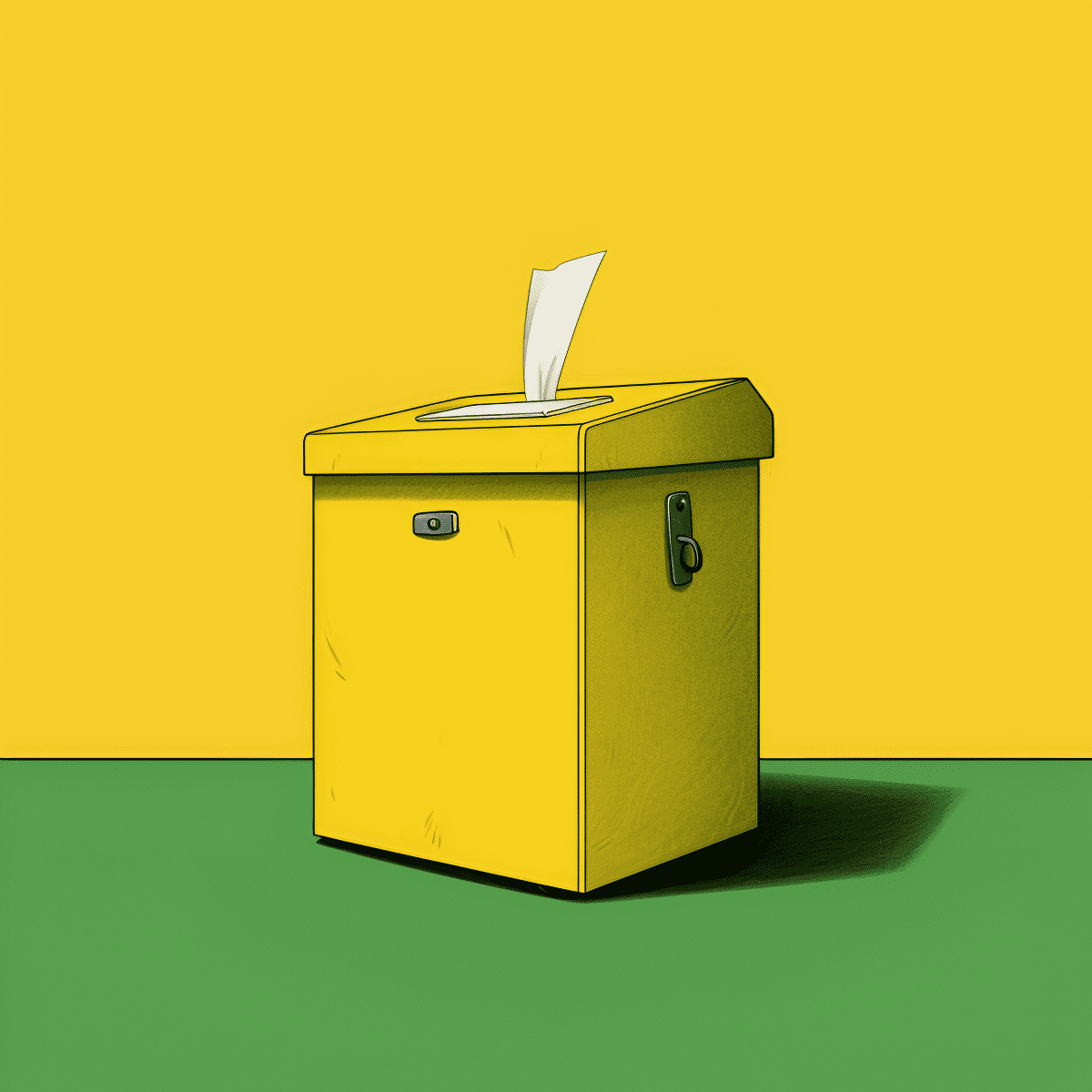You're navigating the tricky waters of rational thinking, and suddenly you find yourself trapped between two choices. But wait—what if you're not limited to just those options? This is where understanding the False Dilemma Fallacy becomes crucial.
A False Dilemma Fallacy occurs when an argument falsely presents two options or solutions as the only possible choices, ignoring or dismissing the existence of alternative options.
Stick around to learn how this fallacy can impact your life, from the political choices you make to the products you buy. We'll explain the term and share some false dilemma examples.
What is a False Dilemma Fallacy?

Imagine you're watching a sports match. Someone says, "You're either with us, or you're against us." Hold on a minute. What if you're just there to enjoy the game? This is a classic example of a False Dilemma Fallacy.
This type of logical fallacy often occurs when someone limits your choices to just two options, ignoring the possibility that other alternatives exist. Fallacies are logical errors, usually in arguments, that people make which lead to inconsistent reasoning.
It's like saying you can only have vanilla or chocolate ice cream, when in reality, there's a whole range of flavors like strawberry, mint, and rocky road.
False dilemmas are everywhere: in politics, media, and everyday conversations. They can make complex issues seem overly simple, leading you to make hasty decisions. It's a way to control the narrative, guiding you toward one of two pre-chosen options.
The key to not falling for this trap is to recognize it for what it is—a manipulation technique that aims to restrict your thinking.
Recognizing a false dilemma requires you to challenge the offered choices. Always ask yourself: are these really the only options? More often than not, you'll find that life isn't just black and white; it's filled with shades of gray.
Other Names for False Dilemma:
- Black-or-White Fallacy
- Black and White Thinking
- Either/Or Fallacy
- False Dichotomies
- Us Versus Them Fallacy
- False Binary
- All or Nothing Fallacy
- False Choice Fallacy
Similar Logical Fallacies:
- Strawman Fallacy: Misrepresenting someone's argument to make it easier to attack.
- Ad Hominem: Attacking the person rather than their argument.
- Slippery Slope: Arguing that a certain action will inevitably lead to a negative outcome.
- Red Herring: Introducing irrelevant information to divert attention from the issue at hand.
- Appeal to Authority: Relying on the opinion of an "expert" rather than a sound argument.
The concept of a false dilemma has been around for centuries, often used in philosophical debates and political discourse.
While it's difficult to pinpoint the exact origin, the term "false dilemma" itself is relatively modern, gaining traction in the 20th century as the study of logic and critical thinking evolved. It serves as a catch-all phrase for situations that limit perceived options, simplifying complex issues into misleading binaries.
It's also known as a false dichotomy or false analogy, wherein the fallacious argument only provides two mutually exclusive options.
27 Examples
1) Voting Choices

"If you don't vote for this candidate, then you're supporting the enemy," says a political ad.
In this instance, the fallacy limits your options to only two options: voting for a particular candidate or being against the nation's interest. It discounts the possibility of third-party candidates or abstaining from voting due to dissatisfaction with all candidates.
2) Environmental Care
"You either support this one specific climate policy, or you don't care about the planet."
Either or statements like this force you into an unnecessary corner. It ignores the range of actions one can take to care for the environment, including supporting other policies or initiatives.
3) Job Offers
"You can either take this job now, or you'll never have another opportunity like it."
This is a high-pressure false dilemma that ignores the likelihood of other job offers and opportunities appearing in the future.
4) College Majors

"You can either study medicine or be a failure."
Parents or peers may present this stark choice, neglecting myriad other fulfilling and successful career paths that exist outside of medicine.
5) Social Media Usage
"You're either active on all social media platforms, or you're completely disconnected from the world."
This is a classic false dilemma that dismisses a balanced approach to social media use. You can't make your own conclusions about which platforms to use, or even to use only one.
6) Patriotism

"You're either with us or against us."
This simplifies complex feelings about nationality and loyalty into a binary choice, negating the nuanced positions one might hold.
7) Work-life Balance
"If you're not putting in overtime, you're not committed to your job."
This premise ignores the importance of work-life balance and the possibility of being productive within regular hours. This is an example of presenting a limited number of problematic options.
8) Parenting Styles
"You can either be your child's friend or a good parent, not both."
This false dilemma disregards the multifaceted nature of parent-child relationships, which can include elements of both friendship and authority. There are more available options.
9) Religion
"You either believe in God or you have no morals."
This statement fails to consider the various ethical systems outside of religious belief.
10) Dieting
"You're either on a strict diet or you're not taking your health seriously."
This ignores balanced approaches to health and wellness that don't involve extreme dieting.
11) Video Games

"If you're not a hardcore gamer, you're a casual scrub."
This dismisses a spectrum of engagement levels in the gaming community.
12) Sports Teams
"You either support Team A, or you're a fan of Team B."
This excludes the possibilities of being a neutral observer, supporting multiple teams, or not being interested in the sport at all.
13) Fashion
"You either follow the latest trends or you have no sense of style."
This false dilemma neglects personal preferences and unique styles that don't align with current trends.
14) Animal Rights
"You're either vegan, or you don't care about animals."
This statement disregards other ways people can advocate for animal welfare.
15) Music Taste
"If you don't like this genre, you have bad taste in music."
This fails to take into account the subjectivity of musical preference.
16) Romantic Relationships
"If you don't marry me, you don't love me."
This is a manipulative tactic that doesn't account for a variety of reasons why someone might not want to get married.
17) Education Systems
"You either support public schools or you're against education."
This ignores the existence of other educational settings like private schools, homeschooling, and online education.
18) Crime and Punishment
"If you're not for the death penalty, you're letting criminals win."
This false dilemma excludes other forms of punishment and views on law and justice.
19) Economic Theories
"You're either a capitalist or a socialist."
This ignores mixed economies and the nuances within each economic system. These systems are also not mutually exclusive options. But it's easy to capture the attention of an audience when presenting only two choices.
20) Health Practices
"If you're not into natural remedies, you're supporting Big Pharma."
This divisive language leaves out the idea that some people might prefer a combination of both. It's also an assumption that there are no additional options.
21) Investment Strategies
"You either invest in stocks, or you're throwing your money away."
This statement neglects other investment options like real estate, bonds, or mutual funds. There are multiple propositions possible.
22) Vehicle Choices
"If you're not driving an electric car, you don't care about the environment."
This overlooks other eco-friendly practices and other types of sustainable transportation. Not to mention, it tries to suggest you are not a good person, which isn't only determined by one action.
23) Eating Out
"You either tip 20%, or you're cheap."
This fails to consider service quality or cultural differences in tipping norms.
24) Smartphone Platforms
"You're either Team iPhone or Team Android."
This statement leaves out other mobile operating systems and the potential for user overlap.
25) Learning Methods
"You either have a degree, or you're not educated."
This ignores self-education, trade schools, and other non-traditional learning methods.
26) Human Rights
"If you're not with us, you're against human rights."
This tactic is often used to shut down nuanced discussion about complex human rights issues. It's not about two extremes.
27) Travel Preferences
"You're either a traveler or a homebody."
This false dilemma doesn't consider those who enjoy a balance of both travel and home life.
The Psychological Mechanisms Behind It
The power of the false dilemma fallacy lies in its ability to simplify complex issues. From a psychological perspective, this is appealing because the human brain naturally seeks shortcuts to reduce cognitive load.
We're wired to prefer simpler choices as they're easier to process. This mental shortcut is known as "heuristic thinking," and it helps us make quick decisions without weighing every single detail. However, the downside is that heuristics can lead to errors in judgment, like falling for a false dilemma.
Moreover, it's important to know how false dilemmas often play on emotions rather than logic. They tap into our natural tendencies toward "in-group" loyalty and "out-group" hostility, forcing us to pick sides. This emotional manipulation can cloud our rational thinking, making it easier for the fallacy to take hold.
By framing the issue as a battle between "us vs. them" or "right vs. wrong," a false dilemma presents a sense of urgency and moral righteousness, compelling you to choose quickly without exploring other options.
The Impact of the False Dilemma Fallacy
The consequences of falling for a false dilemma can be far-reaching.
At an individual level, it may lead you to make ill-informed decisions that you later regret. For example, if you believe the fallacy that you must choose between a high-paying job you hate and a low-paying job you love, you may miss out on opportunities for a balanced life.
In politics and social issues, false dilemmas polarize public opinion and hinder constructive discussion. They can limit our ability to see middle-ground solutions, creating unnecessary divisions in society.
Even more troubling, false dilemmas can be a tool for manipulation and control. When presented with only two extreme options, people are more likely to concede to one of them, even if it goes against their better judgment.
This is often exploited in the form of negotiation tactics, marketing strategies, and political discourse to push a certain agenda or product.
How to Identify and Counter It
Spotting a false dilemma requires critical thinking. First, pay attention to the language being used. Phrases like "either-or," "with us or against us," and "now or never" are often red flags.
Once you've identified a potential false dilemma, ask yourself if these are genuinely the only options available. Are there other alternatives that haven't been presented? Is there room for nuance or compromise? Often, the answer is yes.
Counteracting a false dilemma involves breaking it down to expose the hidden choices. In conversations, this can be as simple as asking, "What about other options like X or Y?" This challenges the limitations imposed by the fallacy and opens the door for a more nuanced discussion.
In your own decision-making process, try brainstorming other possibilities before committing to one of the presented options. This not only liberates you from the constraints of the fallacy but also empowers you to make choices that better align with your values and needs.
